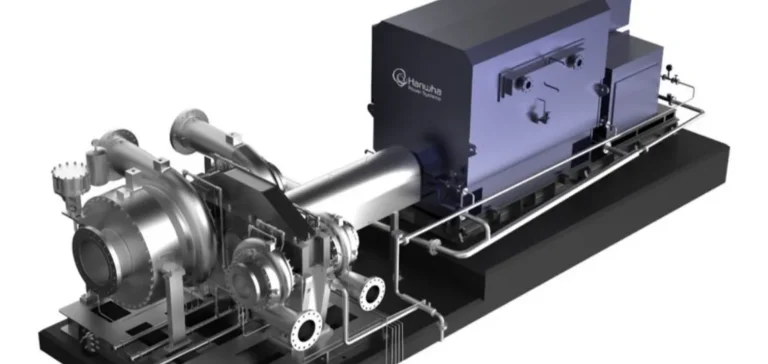Hanwha Power Systems has signed a supply contract for carbon dioxide (CO₂) mechanical vapour recompression (MVR) compressors to equip a new combined-cycle power plant integrating carbon capture, utilisation and storage (CCUS) technology in Europe. Commercial operation of the facility is scheduled for the end of 2028, with the aim of reducing the carbon footprint of power generation.
A key role in energy efficiency
The compressors will compress low-pressure steam and convert it into high-temperature steam for reinjection into the capture process. This recovery system improves thermal efficiency and reduces the plant’s energy consumption while limiting operating expenditure (OPEX). The technology developed by Hanwha Power Systems is designed to provide a stable thermal energy supply to the CO₂ treatment units.
At the core of the process, the MVR compressors will feed the stripper, the desorption unit responsible for separating carbon dioxide from chemical solutions. By reusing steam generated at low temperature, the system enables continuous CO₂ capture while lowering the overall energy demand of the facility.
Strengthening Hanwha’s position in CCUS
This contract strengthens Hanwha Power Systems’ expansion into the carbon-related market. The company already offers CO₂ compression systems above 150 bar, covering storage, industrial utilisation and transport needs across the CCUS value chain. With this European project, the South Korean group is consolidating its position in energy infrastructures based on carbon capture and treatment.
Gi-hoon Do, Head of the Equipment Division at Hanwha Power Systems, stated that this cooperation “demonstrates the company’s technological competitiveness in the CCUS field” and highlights its ambition to become a trusted industrial partner.






















